This year, I spent my spring break traveling around Japan with my art history seminar course, ART 429 Visual Japan: Past and Present. It was an absolutely transformative experience, both academically and personally. I’m here to share a little bit about how I learned to use experiences to inspire research and find answers through reflection.
Preparing for your Senior Thesis Before your Senior Year: Tips on Finding a Thesis Adviser
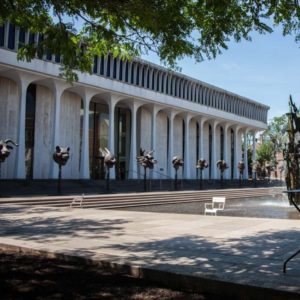
If you’re caught up on some of my earlier posts, you’ll remember that I’ve been working on my Junior Papers all year, ultimately gearing up towards the independent work that my senior thesis will require. However, as an underclass student, I was definitely unclear about what the senior thesis process would entail. I thought it was something I wouldn’t have to worry about until my last year at Princeton when, in reality, it starts much earlier than that (scary!!).
Professorship and Mentorship: An Interview With Professor Bernadette Pérez
This winter, for our seasonal series entitled “Professorship and Mentorship,” PCURs interview a professor from their home department. In these interviews, professors shed light on the role that mentorship has played in their academic trajectory, including their previous experiences as undergraduate and graduate students as well as their current involvement with mentorship as independent work advisers for current Princeton undergraduates. Here, Rafi shares his interview.
~~~~~
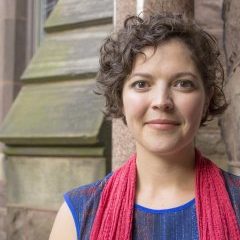
I met Professor Pérez last semester as a student in her course on Commodity Histories. Throughout the semester, I was inspired by her commitment to interdisciplinary research and her focus on subjugated histories. I was excited to hear about her personal research journey and any advice she might have for a confused undergrad like me.
Continue reading Professorship and Mentorship: An Interview With Professor Bernadette Pérez
Open-Ended Assignments: Tips Towards Narrowing Your Research
When a professor assigns a research paper with no specific prompt, it sometimes can be hard to know exactly what kind of work is expected. Assignments like these may provide a suggested page count and an injunction to stay within the bounds of the course theme, but little else. In this case, the possibilities for paper topics seem infinite. Once you get past this hurdle and settle on a general idea you would like to explore, you still may feel compelled to answer some big questions; questions that might cover a long time frame, seek to identify general trends with a large sample size, or tackle broad theoretical questions. So much of the academic material we are exposed to seems to deal with these “big questions”: survey lectures, assigned readings with titles of sweeping breadth, and the prospect of the senior thesis.
The impulse you may have to ask big questions is natural, then— and it’s a good impulse, too! It is a great way to jumpstart your research, beginning the process of narrowing down by going from infinite potential topics to many potential topics. But, with a looming due date (unfortunately) limiting your research time, keeping your question broad can become overwhelming, and hinder your ability to meaningfully answer it.
During my experience this summer working on an independent research project as an intern with the Office of Undergraduate Research’s ReMatch+ program, I came to learn the importance of narrowing your question early in the research process. Though through the wonderful advice of my ReMatch+ graduate student mentor, my research was pretty specific by midsummer (focusing on the language of “othering” in New York City press reports of a June 1848 Paris workers’ rebellion), it took me several weeks to get to there— necessary time in retrospect, but time I would have rather been developing my topic rather than figuring out what it was. I definitely could have benefited from some guidance at the beginning of my work. So, with that in mind, I hope the tips below will help you narrow your research questions early on, so you don’t have to learn the hard way like I did.
Continue reading Open-Ended Assignments: Tips Towards Narrowing Your Research
Things to Check for Before Submitting your Writing Seminar Paper
As a Writing Center fellow, I definitely have conferenced my share of writing seminar essays, and I know that there are a lot of common themes that first years worry about. In this post, I wanted to make a checklist of exercises to try before you submit your final draft!
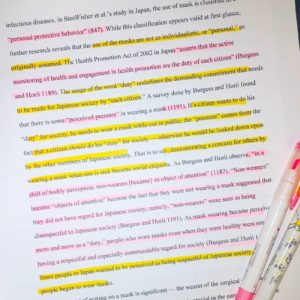
Continue reading Things to Check for Before Submitting your Writing Seminar Paper
5 Reasons to Join PCUR
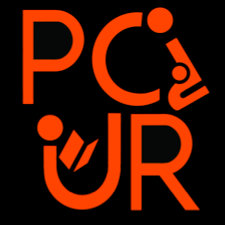
As we return from Spring Break, we’re all getting ready to finish up the semester and launch into whatever we might have planned for the summer. However, now is also a time to reflect on the past year, and begin thinking about what we might want to change, or what we want to continue in the upcoming academic year. One exciting opportunity to consider is to join PCUR! We are now accepting applications for new correspondents for the 2019-2020 academic year.
What is so great about being a part of PCUR? Continue reading to find out what the current correspondents have to say about why they joined PCUR, what they have enjoyed about the experience so far, and why they would encourage others like you to apply.
How to Take Summer Classes
As summer approaches, it is time for us to begin finalizing summer plans. An important summer option that many Princeton students forget to consider is taking courses at other institutions over the summer. This option allows you to take prerequisites and certain AB distributional requirements outside of Princeton and free your schedule to take other interesting electives during your time here. In this post, I will outline the process of getting approval for summer courses and suggest possible funding opportunities to cover course tuition.
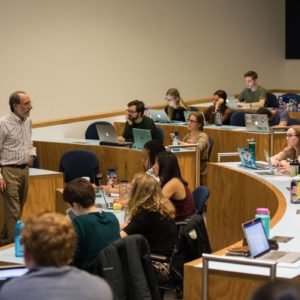
Professorship and Mentorship: An Interview With Professor of Religion Anne Marie Luijendijk
This winter, for our seasonal series entitled “Professorship and Mentorship,” PCURs interview a professor from their home department. In these interviews, professors shed light on the role that mentorship has played in their academic trajectory, including their previous experiences as undergraduate and graduate students as well as their current involvement with mentorship as independent work advisers for current Princeton undergraduates. Here, Shanon shares his interview.
~~~~~
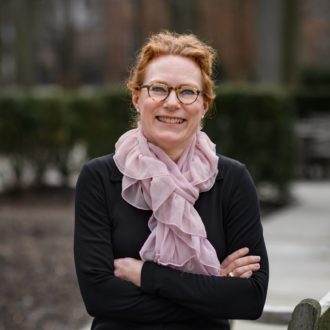
As part of our seasonal series on faculty research, I sat down with Professor of Religion Anne Marie Luijendijk to discuss her work in Early Christian History through the study of papyrus manuscripts. Having taken a course with Professor Luijendijk before, I must say that she is one of the most enthusiastic educators I’ve ever met. As such, it was definitely a privilege to speak with her about her own research. You can read our conversation below. If you’re interested in advice for working with a faculty adviser, the importance of taking walks, or the historical study of ancient religious manuscripts, then read on! Continue reading Professorship and Mentorship: An Interview With Professor of Religion Anne Marie Luijendijk
How to Give an A+ Presentation in Seminar
In almost every seminar I’ve taken at Princeton, one of the main assignments has been a weekly student presentation. The professor typically passes a syllabus around the room and asks each student to choose a week or two to present. The structure of these presentations will vary, but I’ve collected some tips for how to prepare an A+ class presentation:
Make sure you understand your professor’s expectations. How long is the presentation supposed to be? Are you expected to lead the whole class discussion or just introduce the readings? What types of information do they want you to provide: Background for the readings? Summary of the arguments? Your own analysis? It can help to schedule a meeting with your professor the week before you present to review these expectations and receive some personalized guidance. If you’re brave enough, consider asking these questions in class on the first day so your classmates can also benefit!
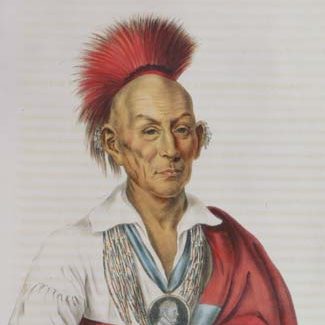
Professorship and Mentorship: A Conversation with the Woodrow Wilson School’s Professor Udi Ofer
This winter, for our seasonal series entitled “Professorship and Mentorship,” PCURs interview a professor from their home department. In these interviews, professors shed light on the role that mentorship has played in their academic trajectory, including their previous experiences as undergraduate and graduate students as well as their current involvement with mentorship as independent work advisers for current Princeton undergraduates. Here, Andrea shares her interview.
~~~~~
Udi Ofer is a Vi

Outside of class, he is the Deputy National Political Director of the American Civil Liberties Union (ACLU) and Director of the ACLU’s Campaign for Smart Justice, which is dedicated to ending mass incarceration in the United States. His background as a civil rights lawyer brings a valuable perspective to the task force seminar “Rethinking Criminal Justice: Policy Responses to Mass Incarceration,” which he leads in the Woodrow Wilson School. I’m taking his seminar this semester, and because of my interest in his research (see posts here and here about my JP last semester, which was also about incarceration), I decided to interview him as part of PCUR’s winter seasonal series.

